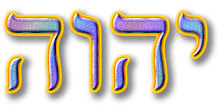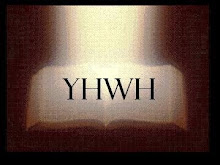For many this is very confusing but if you read the following very carefully, you will understand it.
Today is the day of the first fruit wave Offering.....it is because of this day that Yeshua is called the first fruit. He arose sometime during the early hours of the first day, which is from sundown saturday evening to sundown sunday evening.
This day that we celebrate as First Fruits was called to be the day after the Shabbat after Pesach.
The following is from Norman B. Willis
www.nazareneisrael.org
Read it carefully and ask for the understanding and it will be given to you.....
The Pentecost is one of YHWH's festival days, and the term 'Pentecost' means, "Count (to) fifty." Therefore, to know when YHWH wants the Pentecost held, all we need to do is just count fifty days, and then hold the Feast of the Pentecost on the fiftieth day of the count. Almost all parties agree on this.
Where some parties disagree, however, is when the count should begin. While there is some difference of opinion, if we will but take YHWH at face value, we shall see that He clearly tells us when we should start the count. This start-of-the-count to Pentecost is marked by the offering of a Wave Sheaf (Omer), and which is here called the "sheaf of first fruits of your harvest."
Leviticus 23:10-11
10 "Speak to the children of Israel, and say to them: 'When you come into the land which I give to you, and reap its harvest, then you shall bring a sheaf of the first fruits of your harvest to the priest.
11 He shall wave the sheaf before YHWH, to be accepted on your behalf; on the day after the Sabbath the priest shall wave it."
(10) דַּבֵּר אֶל בְּנֵי יִשְׂרָאֵל וְאָמַרְתָּ אֲלֵהֶם כִּי תָבֹאוּ אֶל הָאָרֶץ אֲשֶׁר אֲנִי נֹתֵן לָכֶם וּקְצַרְתֶּם אֶת קְצִירָהּ | וַהֲבֵאתֶם אֶת עֹמֶר רֵאשִׁית קְצִירְכֶם אֶל הַכֹּהֵן:
(11) וְהֵנִיף אֶת הָעֹמֶר לִפְנֵי יְהוָה לִרְצֹנְכֶם | מִמָּחֳרַת הַשַּׁבָּת יְנִיפֶנּוּ הַכֹּהֵן:
Verse 11 tells us that we are to wave the Omer and begin the count "on the day after the Sabbath" (מִמָּחֳרַת הַשַּׁבָּת). Rabbis of all types claim that this means "on the day after the Passover (מִמָּחֳרַת הַפֶּסַח). They make this argument on the basis that the Passover is also one of YHWH's Sabbaths and Festival Days. However, this argument is clearly in contradiction to the face value of the text, which tells us to wave the Omer on the day after the weekly Sabbath (הַשַּׁבָּת) that either falls on, or follows the Passover.
In order to understand why the rabbinical argument is wrong, first we have to take a look at verse 14, which tells us we are not allowed to eat any of the produce of the land until after we have brought this Wave Sheaf/Omer to YHWH.
Leviticus 23:14
14 "'You shall eat neither bread nor parched grain nor fresh grain until the same day that you have brought an offering to your Elohim; it shall be a statute forever throughout your generations in all your dwellings.
(14) וְלֶחֶם וְקָלִי וְכַרְמֶל לֹא תֹאכְלוּ עַד עֶצֶם הַיּוֹם הַזֶּה עַד הֲבִיאֲכֶם אֶת קָרְבַּן אֱלֹהֵיכֶם | חֻקַּת עוֹלָם לְדֹרֹתֵיכֶם בְּכֹל מֹשְׁבֹתֵיכֶם
Then in Leviticus 23:15-16, YHWH reiterates the commandment to count fifty days from the Wave Sheaf offering, which was made the day after the weekly Sabbath (הַשַּׁבָּת).
Leviticus 23:15-16
15 'And you shall count for yourselves from the day after the Sabbath, from the day that you brought the sheaf of the wave offering: seven Sabbaths shall be completed.
16 Count fifty days, to the day after the seventh Sabbath; then you shall offer a new grain offering to YHWH.'"
(15) וּסְפַרְתֶּם לָכֶם מִמָּחֳרַת הַשַּׁבָּת מִיּוֹם הֲבִיאֲכֶם אֶת עֹמֶר הַתְּנוּפָה | שֶׁבַע שַׁבָּתוֹת תְּמִימֹת תִּהְיֶינָה:
(16) עַד מִמָּחֳרַת הַשַּׁבָּת הַשְּׁבִיעִת תִּסְפְּרוּ חֲמִשִּׁים יוֹם | וְהִקְרַבְתֶּם מִנְחָה חֲדָשָׁה לַיהוָה
What the rabbis fail to address here is that had YHWH intended to specify the Passover (הַפֶּסַח), He was more than capable of saying "the Passover" (הַפֶּסַח) instead of saying "the Sabbath" (הַשַּׁבָּת). However, YHWH used the term for the weekly Sabbath (הַשַּׁבָּת). Therefore, unless we are willing to throw out the face value of the text, what we are left with is that both the Wave Sheaf and the Pentecost must always fall on the first day of the week, because:
1. By definition, the weekly Sabbath (הַשַּׁבָּת) is always the seventh day of the week.
2. By definition, the day after the weekly Sabbath is always the first day of the week.
3. Therefore, by extension, since YHWH tells us to offer the Wave Sheaf on the day after the weekly Sabbath (מִמָּחֳרַת הַשַּׁבָּת), we should always offer the Wave Sheaf on the first day of the week.
4. By further extension, verse 16 tells us to hold the Pentecost fifty days later, on the day after the seventh weekly Sabbath, which is also the first day of the week.
5. Therefore, both the Wave Sheaf and Pentecost always fall on the first day of the week.
However, as with many other things, the rabbis have a clever argument to justify their tradition of getting around the face value of the text. This argument is based on Joshua 5:10-12.
Joshua 5:10-12
10 Now the children of Israel camped in Gilgal, and kept the Passover on the fourteenth day of the month at evening on the plains of Jericho.
11 And they ate of the produce of the land on the day after the Passover, unleavened bread and parched grain, on the very same day.
12 Then the manna ceased on the day after they had eaten the produce of the land; and the children of Israel no longer had manna, but they ate the food of the land of Canaan that year.
(10) וַיַּחֲנוּ בְנֵי יִשְׂרָאֵל בַּגִּלְגָּל | וַיַּעֲשׂוּ אֶת הַפֶּסַח בְּאַרְבָּעָה עָשָׂר יוֹם לַחֹדֶשׁ בָּעֶרֶב בְּעַרְבוֹת יְרִיחוֹ:
(11) וַיֹּאכְלוּ מֵעֲבוּר הָאָרֶץ מִמָּחֳרַת הַפֶּסַח מַצּוֹת וְקָלוּי | בְּעֶצֶם הַיּוֹם הַזֶּה:
(12) וַיִּשְׁבֹּת הַמָּן מִמָּחֳרָת בְּאָכְלָם מֵעֲבוּר הָאָרֶץ וְלֹא הָיָה עוֹד לִבְנֵי יִשְׂרָאֵל מָן | וַיֹּאכְלוּ מִתְּבוּאַת אֶרֶץ כְּנַעַן בַּשָּׁנָה הַהִיא:
All parties agree that the Passover (הַפֶּסַח) can fall on any day of the week. Therefore, due to the law of averages, the Passover (הַפֶּסַח) will coincide with the weekly Shabbat (הַשַּׁבָּת) only once in every seven years. When this happens, then the First Day of Unleavened Bread also coincides with the Omer/Wave Sheaf Offering, so that both the Omer and the First Day of Unleavened Bread fall on the first day of the week.
Historically, we know that this one-in-seven coincidence took place when our forefathers entered the Land of Canaan under Joshua, because our forefathers ate the produce of the land on the day after the Passover. According to Verse 14 (above), they could not have eaten of the produce of the land until after they had waved the Omer, and begun the Omer count. However, the only way they could have waved the Omer on the day after the Pesach is if the Passover fell on the weekly Shabbat itself.
Here is how the festival days fell out in Joshua 5:10-12. Notice that in this special one-in-seven case, the First Day of Unleavened Bread coincides with the Wave Sheaf/Omer count:
Pass.
Omer 2ULB 3ULB 4ULB 5ULB 6ULB 7ULB
8 Om. 9 Om. 10 11 12 13 14
15 16 17 18 19 20 21
22 23 24 25 26 27 28
29 30 31 32 33 34 35
36 37 38 39 40 41 42
43 44 45 46 47 48 49
Pent.
Pass. = Passover (Pesach)
Omer = The Wave Sheaf and the start of the 50 Count.
2ULB = Second Day of Unleavened Bread
Om. = Abbreviation for the day of the Omer Count.
Pent. = Pentecost (fiftieth day)
Some reject the idea that the Wave Sheaf and the Pentecost fall on the first day of the week, perhaps because the Christian Church has long designated the first day of the week as its primary day of rest. Perhaps for this reason, and perhaps for others, some believers prefer the rabbinical version of the Omer Count, which has the Omer waved on the First Day of Unleavened Bread. However, let us consider that if YHWH had wanted us to wave the Omer on the First Day of Unleavened Bread, then He would have given us instructions for waving the Omer within the instructions for the First Day of Unleavened Bread. However, He did not do that.
Moreover, by the principle of equal weights and measures, if we do as the rabbis say, and substitute the word 'Passover' for the word 'Sabbath' uniformly throughout Leviticus 23, then what we have is YHWH commanding us to wait seven completed Passovers (i.e., seven completed years) before offering the Pentecost. This makes no sense.
Nonsensical Uniform Substitution:
15 'And you shall count for yourselves from the day after the Passover, from the day that you brought the sheaf of the wave offering: seven Passovers shall be completed.
16 Count fifty days, to the day after the seventh Passover; then you shall offer a new grain offering to YHWH.'"
YHWH gives us a set date for every other festival in Scripture (e.g., Passover is on the 14th day of the first month, Tabernacles is on the 15th day of the seventh month, etcetera). However, the reason YHWH never gives us a set date for the Wave Sheaf or for the Pentecost is that even though these festivals always fall on the first day of the week, the calendar dates differ year by year.
So if we will just take YHWH at His face value, then 'counting to fifty' is easy. We just count the number "One!" on the first day of the week that comes after the weekly Sabbath which either coincides with, or follows the Passover. Then when we reach the fiftieth day of the count (which is always, by definition, on the first day of the week), we bring an offering of new grain to YHWH.
Bemidbar (Numbers) 28:26
26 'Also on the day of the First Fruits, when you bring a new grain offering to YHWH at your Feast of Weeks, you shall have a set-apart gathering. You shall do no customary work.'
More information is available in The Torah Calendar, in the chapter titled, "The Wave Sheaf Offering and the Pentecost."
When YHWH our Elohim brings us back to His land, then we will celebrate the Feast of the Pentecost in the place where YHWH chooses to put His name, which is Jerusalem. May it be soon, and in our day!
In Yeshua's name,
Amein.
יברכך יהוה וישמרך
יאר יהוה פניו אליך ויחנך
ישא יהוה פניו אליך וישם לך שלום
Norman B. Willis
Overseer, The Israelite sect of the Nazarenes
Re-establishing the original faith of the apostles
www.nazareneisrael.org
Subscribe to:
Post Comments (Atom)










No comments:
Post a Comment